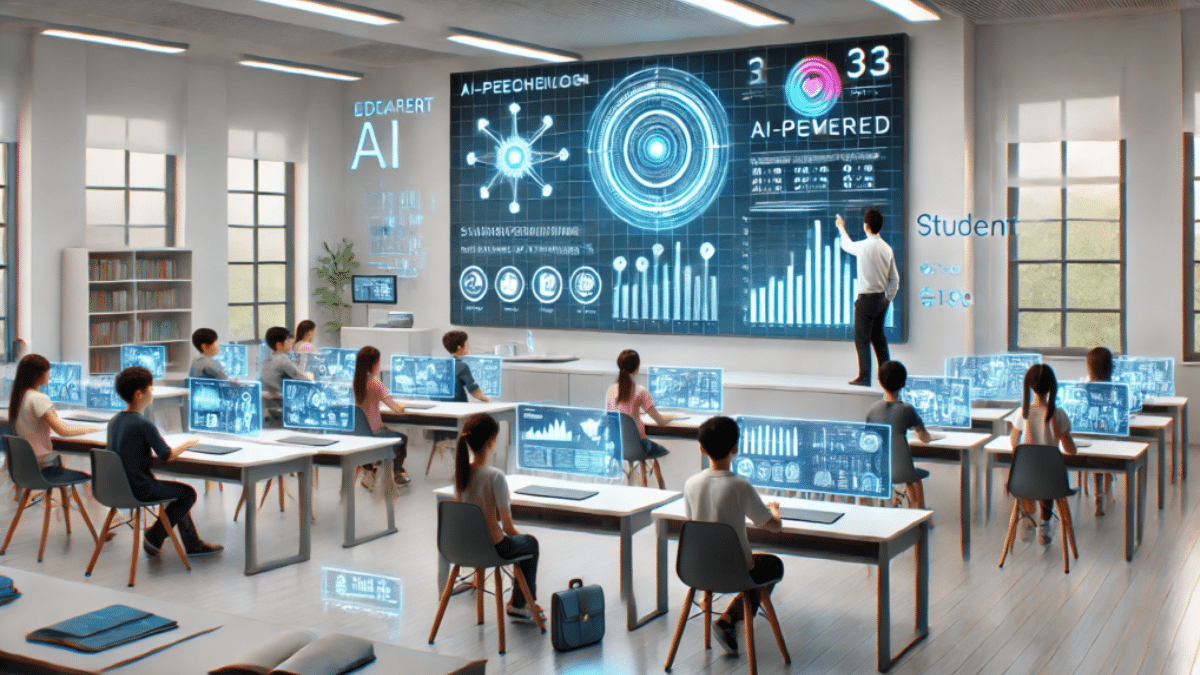Future of Education– Education has always evolved alongside society. From chalkboards and textbooks to digital classrooms and online learning platforms, the way we teach and learn has constantly transformed. Today, in 2025, technology is playing a pivotal role in shaping education, making it more personalized, accessible, and interactive than ever before. This article explores the future of education, the technologies driving change, and how students and educators are adapting to a rapidly evolving learning environment.
Future of Education -The Evolution of Education
Education is no longer confined to traditional classrooms. Over the past few decades, technological innovations have revolutionized the way students access knowledge.
From Chalkboards to Digital Classrooms
Future of Education -Traditional classrooms relied heavily on lectures, textbooks, and rote learning. While this method built strong foundational knowledge, it often lacked engagement and personalization. With the advent of digital tools, students can now access interactive lessons, video tutorials, and virtual labs from anywhere in the world.
The Rise of E-Learning Platforms
Platforms like Coursera, Khan Academy, and Udemy have democratized education, offering courses across various subjects. In 2025, these platforms are increasingly integrating AI to tailor learning experiences according to individual student needs. Adaptive learning algorithms assess a learner’s strengths and weaknesses and provide personalized exercises, making learning more efficient and effective.
Key Technologies Shaping Education in 2025
Several emerging technologies are transforming classrooms and learning experiences in 2025.
Artificial Intelligence (AI)
AI is revolutionizing education by personalizing learning paths. Intelligent tutoring systems can monitor student progress, provide instant feedback, and suggest targeted resources. Teachers also benefit from AI-powered analytics, which help identify gaps in understanding and tailor instruction accordingly.
Virtual Reality (VR) and Augmented Reality (AR)
VR and AR are making learning immersive. Students can explore ancient civilizations, dive into the human bloodstream, or simulate complex engineering projects, all from the safety of their classrooms. AR overlays digital information on the physical world, allowing interactive, hands-on learning experiences.
Gamification and Interactive Learning
Gamification transforms lessons into engaging challenges. By incorporating points, badges, and leaderboards, students are motivated to actively participate in learning activities. Platforms like Classcraft and Kahoot! use game mechanics to make education more enjoyable and effective.
Blockchain in Education
Blockchain technology ensures secure storage and verification of academic credentials. Students can maintain a tamper-proof record of their achievements, and employers can easily verify qualifications. This is particularly useful in online learning environments where verifying authenticity is crucial.
Future of Education -Personalized Learning Experiences
Personalization is a major trend in 2025 education. Not all students learn at the same pace or in the same way.
Adaptive Learning Systems
Adaptive learning platforms analyze data from student interactions to create customized lesson plans. For example, a student struggling with calculus can receive additional exercises and step-by-step tutorials, while advanced learners are challenged with more complex problems.
Learning Analytics
Learning analytics track student performance and engagement, providing actionable insights. Teachers can identify students at risk of falling behind and intervene early. This data-driven approach enhances learning outcomes and reduces dropout rates.
AI-Powered Tutors
AI tutors are becoming commonplace, assisting students with homework, exam preparation, and conceptual understanding. These virtual tutors are available 24/7, making learning more flexible and accessible for students with different schedules.
The Role of Teachers in 2025
Despite technological advancements, teachers remain central to education. Technology is not replacing educators but augmenting their capabilities.
Facilitators of Learning
In 2025, teachers act as facilitators rather than just information providers. With AI handling routine tasks like grading and assessments, educators can focus on mentoring, guiding critical thinking, and fostering creativity.
Professional Development with Technology
Teachers are continuously upskilling to integrate new technologies into their teaching methods. Professional development programs now include AI literacy, VR lesson planning, and digital classroom management, ensuring educators remain effective in a tech-driven environment.
Challenges and Considerations
While technology offers numerous benefits, it also presents challenges that need careful consideration.
Digital Divide
Not all students have equal access to technology. Rural areas and low-income communities may struggle with connectivity and device availability, widening educational inequalities. Governments and organizations must address this gap to ensure inclusive education.
Data Privacy and Security
With AI and analytics collecting vast amounts of student data, privacy concerns are significant. Schools must implement strict data protection measures to safeguard sensitive information.
Balancing Screen Time and Traditional Learning
Excessive reliance on digital tools can lead to screen fatigue and reduced social interaction. Educators need to strike a balance between online and offline learning to promote holistic development.
Also Read : Gen Z Education: Bridging The Gap Between Traditional And Modern Learning
Conclusion
The future of education in 2025 is a dynamic blend of technology and human guidance. AI, VR, AR, gamification, and blockchain are transforming the learning experience, making it more personalized, immersive, and efficient. While challenges like the digital divide and data privacy exist, thoughtful implementation of technology can create an equitable and innovative education system. Teachers remain central to this evolution, guiding students and nurturing critical thinking, creativity, and lifelong learning skills. The journey toward a tech-driven educational landscape is ongoing, promising exciting opportunities for learners and educators alike.
FAQs
Q1: How is AI changing education in 2025?
AI personalizes learning by analyzing student performance, providing targeted resources, and assisting teachers with administrative tasks.
Q2: Can VR and AR replace traditional classrooms?
No, VR and AR complement traditional learning by offering immersive experiences but cannot replace the guidance and mentorship provided by teachers.
Q3: What is adaptive learning?
Adaptive learning uses data-driven algorithms to create personalized lesson plans based on each student’s strengths, weaknesses, and learning pace.
Q4: How can blockchain improve education?
Blockchain ensures secure and verifiable records of academic credentials, preventing fraud and making verification easy for employers and institutions.
Q5: What challenges does technology in education face?
Challenges include the digital divide, data privacy concerns, excessive screen time, and the need for teacher training to effectively use technology.





